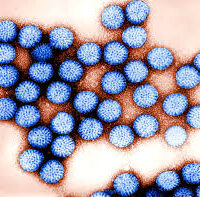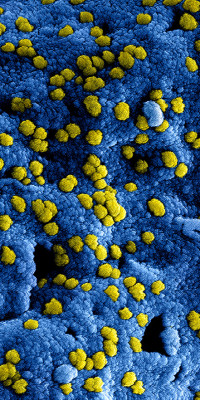Coronaviruses are viruses, belonging to the subfamily Coronavirinae in the family Coronaviridae, that typically affect the respiratory tract of mammals and humans – they are associated with the common cold, pneumonia and severe acute respiratory syndrome (SARS). The virus has also been known to affect the gut. Coronaviruses are responsible for roughly 30% of cases of the common cold.
Transmission:
Coronaviruses are spread primarily through person-to-person contact. This can be through the air by coughing and sneezing, through close personal contact, such as touching or shaking hands, or through touching an object or surface with germs on it, then touching your mouth, nose, or eyes before washing your hands.
Symptoms:
Typical cold and flu type symptoms set in from two to four days after coronavirus infection, and they are typically mild and not considered dangerous. Symptoms include:
- Sneezing
- Runny nose
- Fatigue
- Cough
- Fever (rare)
- Sore throat
- Exacerbated asthma.




